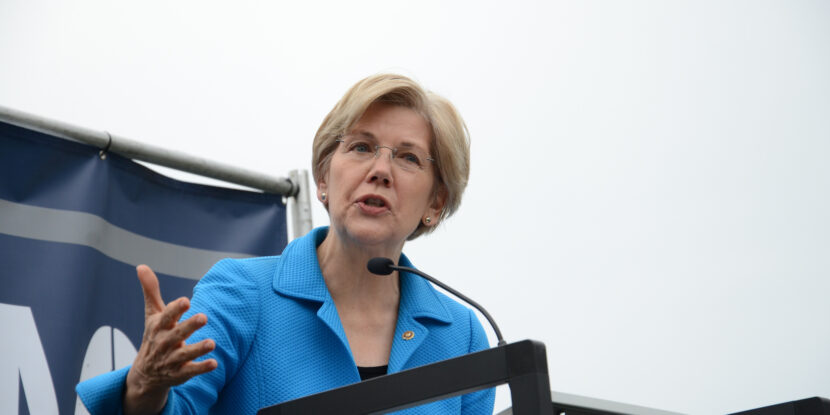
A friend who was a student of Elizabeth Warren at the University of Pennsylvania Law School assures me that back then she was a Republican. So she has some history of political mobility. But even by Washington standards, her latest flip (or is it a flop?) is pretty astounding.
Back when Senator Rand Paul introduced his “Audit the Fed” bill — a mischaracterization, since the real significance of his proposal was the removal of a prohibition against the Government Accountability Office critiquing the monetary policy of the Federal Reserve — Senator Warren denounced it, telling the Huffington Post: “I oppose … this bill because it promotes congressional meddling in the Fed’s monetary policy decisions, which risks politicizing those decisions and may have dangerous implications for financial stability and the health of the global economy.”
These concerns have not prevented Senator Warren from teaming up with Senator Vitter to introduce the “Bailout Prevention Act,” which would — wait for it — subject Federal Reserve emergency lending facilities to Congressional scrutiny. The purpose of Warren-Vitter is to discourage (but not prevent) the Fed from undertaking emergency lending in a financial crisis which is available to fewer than five companies and which does not charge punitive interest rates.
Senator Warren’s trope for the past several years has been that she is all about saving taxpayer money by preventing bank bailouts. So her new legislation would prevent the Fed from bailing out an institution which is insolvent, thereby forcing it into bankruptcy. Of course, bankruptcy is precisely what triggers an actual taxpayer liability for insured deposits — as opposed to the fantasy liability Senator Warren thinks arises from Fed lending (Fed lending may be problematic for any number of reasons, but not because American taxpayers are going to get stuck paying it back).
Normally one would think of Senators Vitter and Warren as being at opposite ends of the bank policy continuum. Vitter, with the counsel of the distinguished monetary economist Allan Meltzer, has urged increasing the capital requirement of banks, which puts shareholders on the hook for bad financial decisions, not taxpayers — a wise market-oriented solution to a supposed problem. Ms. Warren prefers a more command-and-control approach, making major financial institutions virtual subsidiaries of the regulatory agencies.
These are toxic times for major financial institutions. General Electric has shed its GE Capital business — once its most profitable operating unit — to escape Dodd-Frank supervision. JP Morgan Chase is imposing fees on major accounts to force the withdrawal of deposits. Other banks are busily shedding assets and, more importantly, shedding employees. Returns on assets are down across-the-board as banking regulators force banks to reduce the risk of their loans, thereby making credit even less available to job-generating enterprises. Little wonder the American economy is stalled; welcome to Elizabeth Warren’s brave new — but well-regulated and risk-free — world.
Steve Wagner is the founder and president of QEV Analytics, a Washington DC-based public opinion research firm.


